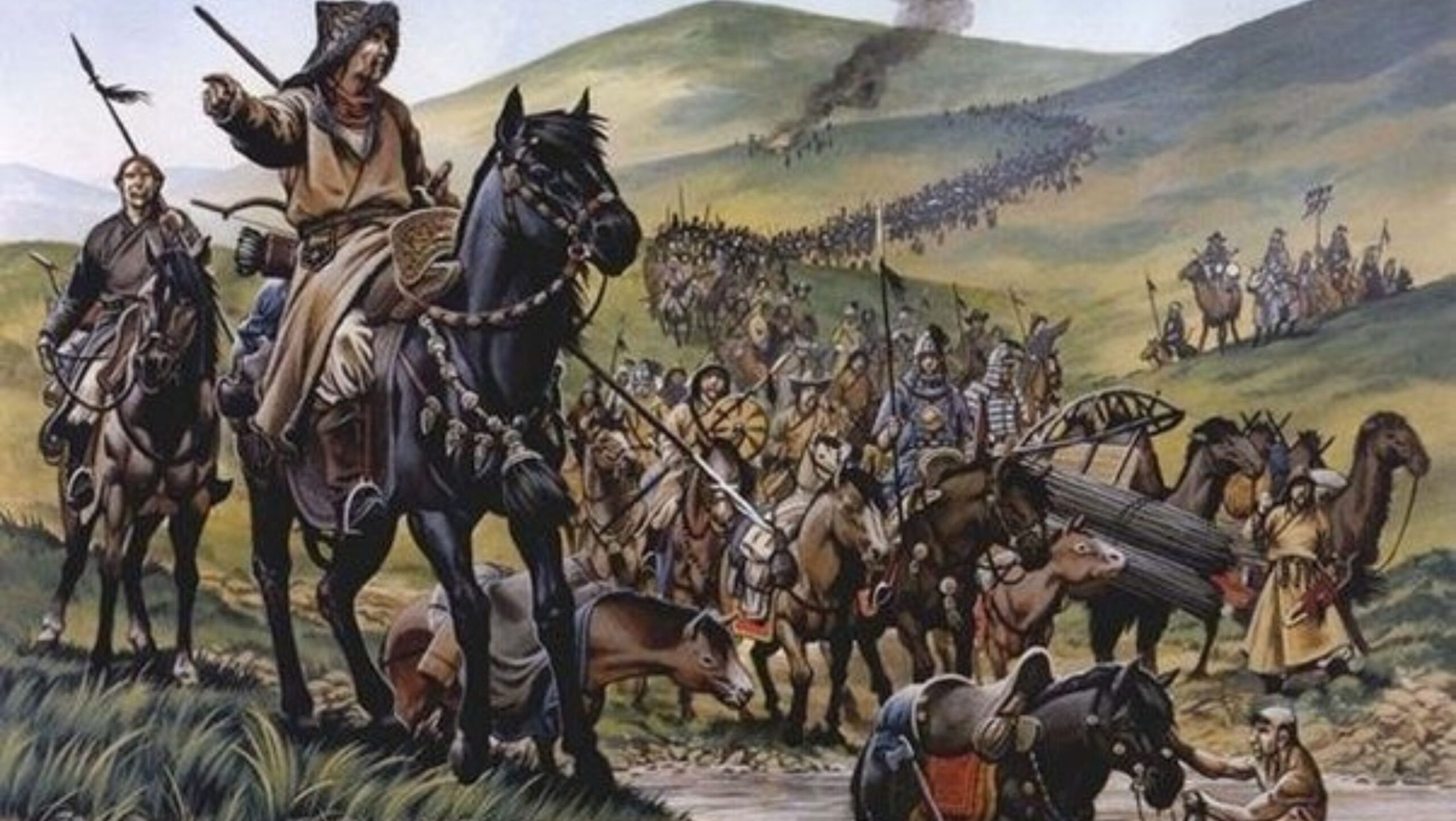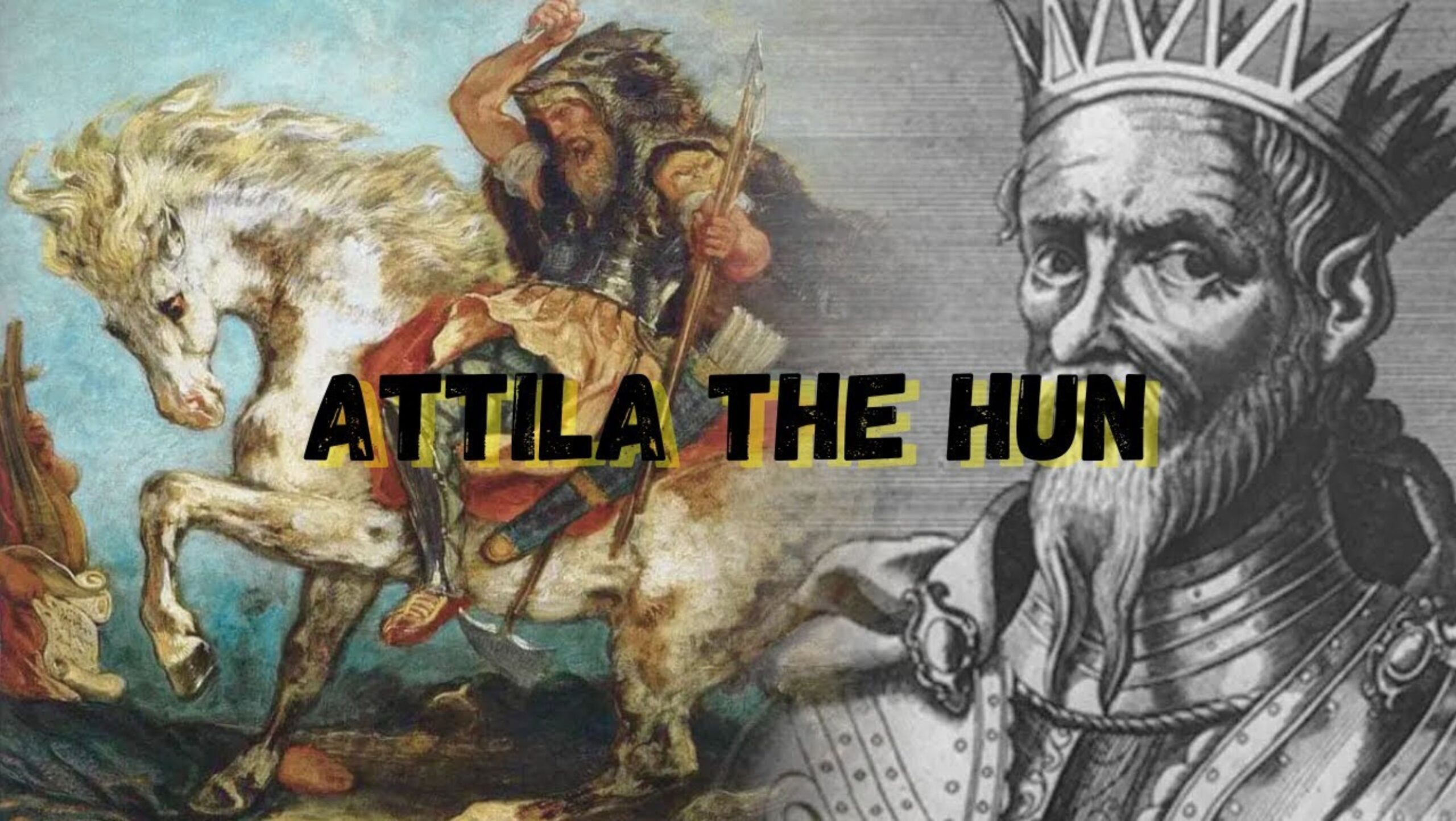The Huns. You’ve heard the name, but how much do you really know about these fierce nomadic warriors who once struck terror into the hearts of Romans and Germans alike? Buckle up, because we’re about to embark on a journey through the pages of history, following the trail of the Hunnic Empire Expansion across Eurasia, leaving an indelible mark on the world.
From their murky origins in the steppes of Central Asia to their meteoric rise under the legendary Attila, the Huns were a force to be reckoned with. Their lightning-fast cavalry, fearsome reputation, and shrewd diplomacy allowed them to carve out an empire that stretched from the Volga to the Rhine. Ready to discover the untold story of Hunnic Empire expansion? Let’s ride!
Table of Contents:
- Origins and Early History of the Huns
- Expansion and Conquests Under Unified Hunnic Rule
- Invasion of Gaul and Italy
- Collapse of the Hunnic Empire
- Legacy and Impact of the Huns
- Conclusion
Origins and Early History of the Huns: Hunnic Empire Expansion
The Huns were a nomadic people who originated in Central Asia. They first appeared in recorded ancient history in the 4th century AD, when they began to migrate westward towards the Volga River, the Caspian Sea, and the Black Sea.
Potential Link with the Xiongnu, First Encounters with Rome and Persia
Some scholars believe the Huns may have been linked to the earlier Xiongnu confederation, who terrorized China during the Han Dynasty. The Huns had early encounters with both the Roman Empire and the Persian Empire during this period.
Expansion and Conquests Under Unified Hunnic Rule

The Huns came under unified rule in the early 5th century, which led to a period of rapid expansion and conquest. They launched raids into Roman lands along the Danube River and extracted tribute payments from the Eastern Romans.
Ruga and Octar’s Reign
Brothers Ruga and Octar took control of the Hunnic Empire in the early 5th century. They pressured the Western Roman Empire and invaded Roman territory, even threatening the Roman Emperor.
The Co-Reign of Attila and Bleda: Hunnic Empire Expansion
After Ruga’s death in 434 AD, his nephews Attila and Bleda took joint control. They continued to raid Roman provinces and forced the Romans to pay large tributes. Attila and Bleda led invasions deep into Roman territory.
Attila’s Sole Rule
In 445 AD, Attila murdered Bleda and became sole ruler. Under his leadership, the Hunnic Empire reached its greatest extent, spanning from Western Europe to the Black Sea. Attila led devastating raids into the Balkans, Gaul, and Northern Italy, earning the nickname “Scourge of God.”
Invasion of Gaul and Italy
Attila invaded Gaul in 451 AD with a massive Hun army, but was met by a coalition of Roman and Visigothic forces. The two sides clashed at the Battle of the Catalaunian Plains, which ended in a strategic defeat for Attila.
Battle of the Catalaunian Plains
The Battle of the Catalaunian Plains was one of the most important battles of Late Antiquity. Attila’s Huns faced off against a Roman army led by general Flavius Aetius and his Visigothic allies. Though tactically inconclusive, it halted Attila’s advance into Western Europe.
Attila’s Invasion of Italy: Hunnic Empire Expansion
Attila invaded Italy in 452 AD, sacking several cities. However, his army was weakened by disease and supply shortages, forcing him to withdraw.
Meeting with Pope Leo
As Attila approached Rome, he was met by Pope Leo I. While the historical details are murky, legend says Leo persuaded Attila to spare the city. This meeting reflected the impact of Attila’s campaigns on the Roman world.
Collapse of the Hunnic Empire: Hunnic Empire Expansion
The Hunnic Empire quickly unraveled after Attila’s sudden death in 453 AD. His sons fought each other for control, leading to a series of succession crises and civil wars.
Disintegration of Hunnic Rule in the West
The power vacuum left by Attila’s death, combined with uprisings by subjected Gothic and Germanic tribes, led to the disintegration of Hunnic rule in Western Europe. The empire Attila built did not long outlast him.
Potential Continuation of Hunnic Rule in the East
Some historians suggest Hunnic rule may have persisted in parts of Eastern Europe and Central Asia after the collapse in the West. However, the historical record is sparse, making their ultimate fate unclear.
Legacy and Impact of the Huns: Hunnic Empire Expansion

The Hunnic Empire fundamentally reshaped the political and demographic landscape of Europe in the 4th and 5th centuries. Their invasions accelerated the fall of the Western Roman Empire and ushered in the Dark Ages.
Successors to the Huns in the West: Hunnic Empire Expansion
In the wake of the empire’s dissolution, various Germanic tribes like the Ostrogoths and Lombards filled the power vacuum in the former Roman provinces of Western Europe. These tribes would go on to forge kingdoms of their own in the ruins of the Roman West.
Influence on the Fall of the Western Roman Empire
The Hunnic invasions were a key catalyst in the fall of the Western Roman Empire. By forcing Rome to divert resources to defend against the Huns and disrupting Roman authority, the Huns mortally weakened the Western Empire. As one late Roman historian wrote, the Huns “changed the face of history.”
Key Takeaway: Hunnic Empire Expansion
The Huns, originating in Central Asia, unified under Attila’s leadership and launched devastating raids into Roman territories. Their invasions played a key role in the fall of the Western Roman Empire.
Conclusion: Hunnic Empire Expansion
The Hunnic Empire expansion was a game-changer, a turning point in the history of Europe and Asia. In just a few short decades, the Huns went from obscure nomads to the terror of the ancient world, their name synonymous with destruction and conquest.
But the Huns were more than just barbarian raiders. They were skilled diplomats, forging alliances and extracting tributes from the great powers of their day. They were also innovators, pioneering new forms of warfare and horsemanship that would influence military tactics for centuries to come.
The Hunnic Empire may have been short-lived, but its impact was profound and far-reaching. The Huns accelerated the fall of the Western Roman Empire, setting the stage for the rise of medieval Europe. They also left a rich legacy in the form of art, legends, and place names that endure to this day.
So the next time you hear the name “Attila” or “Hun,” remember the incredible story of Hunnic Empire expansion – a story of ambition, conquest, and transformation that forever changed the course of history.

